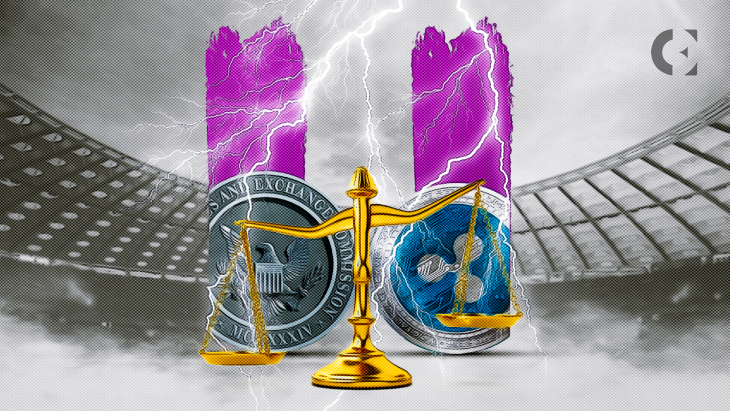- Attorney Jeremy Hogan believes that an appeal is unlikely if Ripple wins the lawsuit filed by the SEC.
- The lawyer stated that a settlement in the SEC’s lawsuit against Ripple would be bad for the crypto industry.
- At present, several experts are predicting a favorable outcome for Ripple.
“A settlement in the Securities and Exchanges Commission’s ongoing lawsuit against Ripple would not establish a significant precedent for the cryptocurrency industry,” claimed crypto lawyer Jeremy Hogan in a recent interview. Speaking to Digital Asset Investor, the Hogan & Hogan partner shared his take on the possible outcomes of the controversial lawsuit and its impact on the broader crypto industry.
Hogan believes that in the event that the SEC chooses to settle its lawsuit against Ripple, it will have no impact on any other lawsuits against crypto entities. In other words, if Ripple chooses to settle, it will prevent the formation of a key precedent that would benefit crypto firms legally engaged by the securities regulator in the future.
The crypto lawyer argued that a settlement would help Ripple and may appear as a win for the crypto industry, but could come as a blow to crypto overall. As of now, a number of experts are projecting a win for Ripple. The blockchain firm has spent tens of millions of dollars on its defense, far more than most crypto firms can afford.
The future of several crypto firms, particularly those dealing with digital assets that the SEC claims are securities, is generally believed to be contingent on the outcome of this lawsuit. The community strongly believes that a win would set a significant legal precedent that may replace the controversial Howey Test, which the securities regulator has cited in a number of its lawsuits.
Speaking on the likelihood of an appeal from the SEC in case the judgment goes in favor of Ripple, Hogan stated that it would be unlikely. Hogan pointed out that in case of an appeal, the case would be taken up in the second circuit court of the United States, which would pave the way for a binding precedent.
Disclaimer: The information presented in this article is for informational and educational purposes only. The article does not constitute financial advice or advice of any kind. Coin Edition is not responsible for any losses incurred as a result of the utilization of content, products, or services mentioned. Readers are advised to exercise caution before taking any action related to the company.









